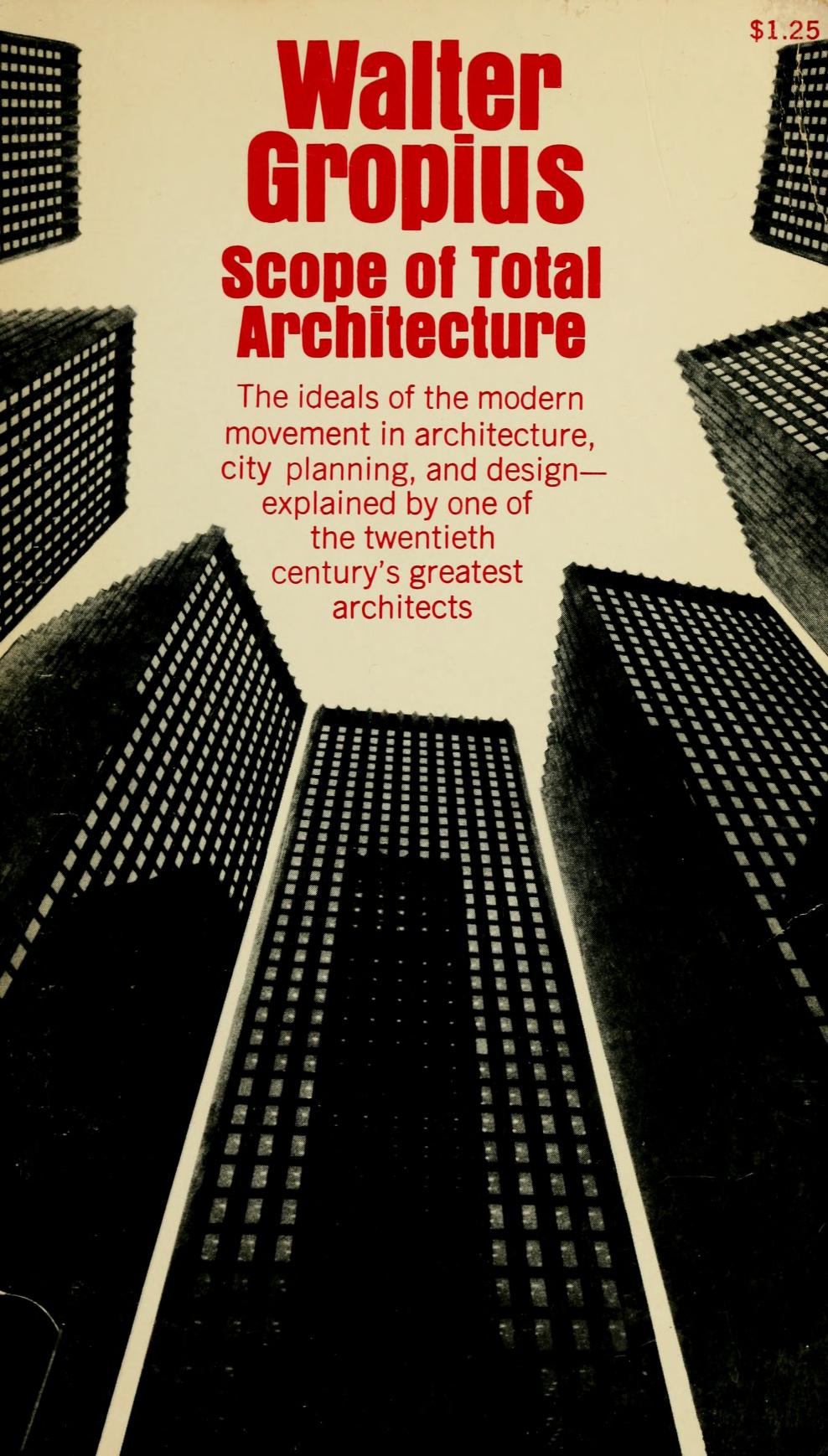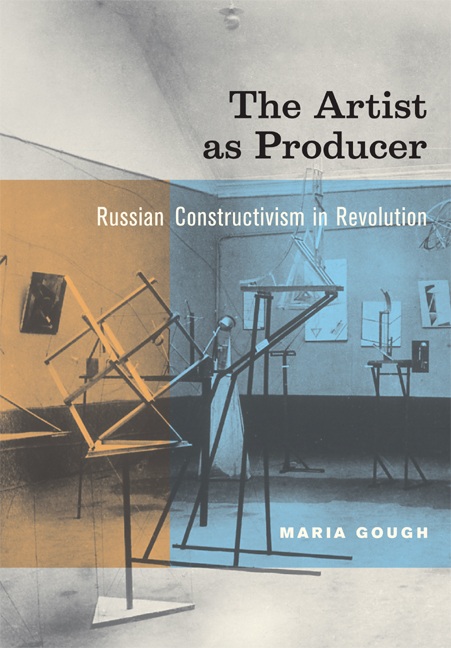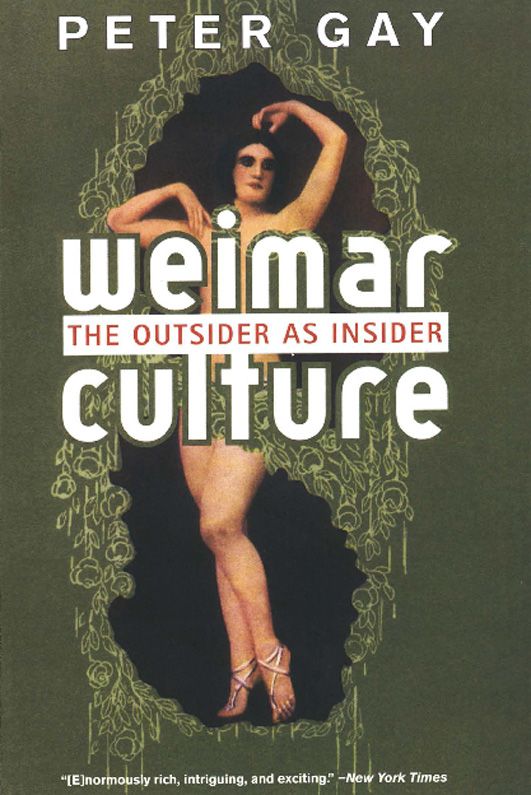Walter Gropius: Scope of Total Architecture (1956/1962)
Filed under book | Tags: · architecture, bauhaus, design, perception, urbanism

A collection of essays by founder of the Bauhaus.
First published by Harper, 1956
This edition published by Collier Books, 1962
Fourth printing, 1970
158 pages
PDF (41 MB, no OCR)
Comment (0)Maria Gough: The Artist as Producer: Russian Constructivism in Revolution (2005)
Filed under book | Tags: · 1920s, architecture, art, art history, art theory, avant-garde, communism, composition, constructivism, electricity, formalism, functionalism, politics, productivism, revolution, russia

“The Artist as Producer reshapes our understanding of the fundamental contribution of the Russian avant-garde to the development of modernism. Focusing on the single most important hotbed of Constructivist activity in the early 1920s—the Institute of Artistic Culture (INKhUK) in Moscow—Maria Gough offers a powerful reinterpretation of the work of the first group of artists to call themselves Constructivists. Her lively narrative ranges from famous figures such as Aleksandr Rodchenko to others who are much less well known, such as Karl Ioganson, a key member of the state-funded INKhUK whose work paved the way for an eventual dematerialization of the integral art object.
Through the mining of untapped archives and collections in Russia and Latvia and a close reading of key Constructivist works, Gough highlights fundamental differences among the Moscow group in their handling of the experimental new sculptural form—the spatial construction—and of their subsequent shift to industrial production. The Artist as Producer upends the standard view that the Moscow group’s formalism and abstraction were incompatible with the sociopolitical imperatives of the new Communist state. It challenges the common equation of Constructivism with functionalism and utilitarianism by delineating a contrary tendency toward non-determinism and an alternate orientation to process rather than product. Finally, the book counters the popular perception that Constructivism failed in its ambition to enter production by presenting the first-ever case study of how a Constructivist could, and in fact did, operate within an industrial environment. The Artist as Producer offers provocative new perspectives on three critical issues—formalism, functionalism, and failure—that are of central importance to our understanding not only of the Soviet phenomenon but also of the European vanguards more generally.”
Publisher University of California Press, 2005
ISBN 9780520226180
xi+257 pages
Reviews: Paul Wood (Art Journal, 2006), Charlotte Douglas (Modernism/modernity, 2006), Elizabeth Kridl Valkenier (Russian Review, 2006), Patricia Railing (Slavic Review, 2007), Douglas Greenfield (Slavic and East European Journal, 2007), Roann Barris (SECAC Review, 2007).
PDF (21 MB, no OCR)
Comment (1)Peter Gay: Weimar Culture: The Outsider As Insider (1968–) [EN, CR]
Filed under book | Tags: · 1910s, 1920s, 1930s, architecture, art, bauhaus, cinema, expressionism, film, germany, literature, modernism, music, nazism, philosophy, politics, psychoanalysis, theatre, weimar republic

First published in 1968, Weimar Culture is one of the masterworks of Peter Gay’s career. A study of German culture between the two wars, the book brilliantly traces the rise of the artistic, literary, and musical culture that bloomed ever so briefly in the 1920s amid the chaos of Germany’s tenuous post-World War I democracy, and crashed violently in the wake of Hitler’s rise to power. Despite the ephemeral nature of the Weimar democracy, the influence of its culture was profound and far-reaching, ushering in a modern sensibility in the arts that dominated Western culture for most of the twentieth century.
First published by Harper & Row, New York, 1968.
Publisher W. W. Norton, 2001
ISBN 0393322394, 9780393322392
205 pages
via chef
Review (Walter Laquer, The New York Times Books, 1968)
Review (Elizabeth Wiskemann, The Spectator, 1969)
Review (Sterling Fishman, History of Education Quarterly, 1970)
Weimar Culture: The Outsider As Insider (English, 1968/2001, EPUB)
Weimarksa kultura: Isključenik kao uključenik (Croatian, trans. Danja Šilović-Karić, 1999, added on 2014-8-3)

